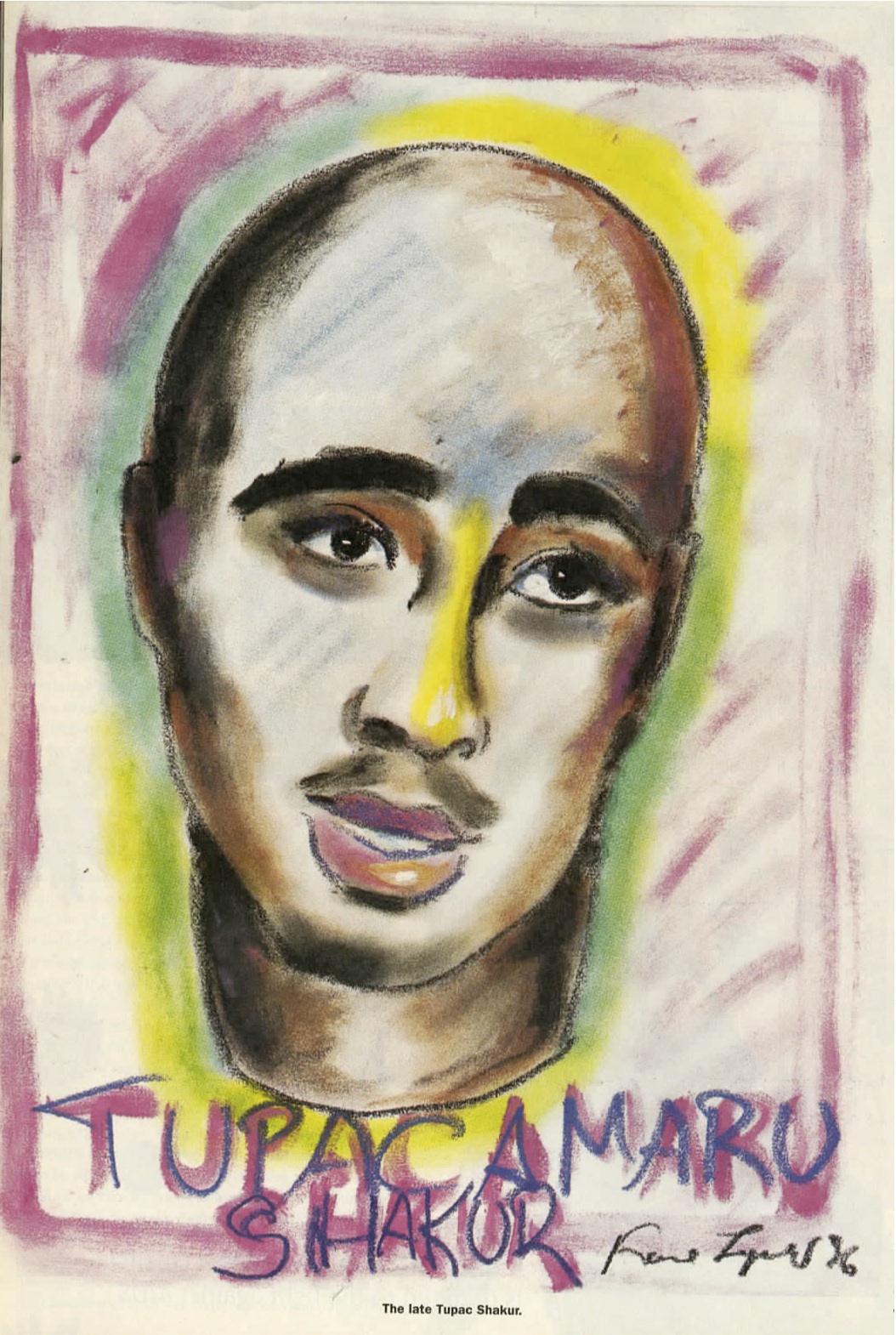Old News: Tupac Shakur

DRAWING BY KARL LAGERFELD
In Old News, we highlight a piece from Interview’s past that resonates with the present.
In terms of greatest posthumous newsmakers, 2Pac ranks up there among Marilyn Monroe, Biggie, and Michael Jackson. This year alone, he’s come back with a sex tape and even a New Zealand resurrection. But 20 years ago this Thursday, Tupac Amaru Shakur was just a relative unknown debuting his very first album, 2Pacalypse Now.
In honor of the occasion, we look back to the final piece Interview wrote on Shakur. Just five months after the rapper was fatally gunned down in Las Vegas, Interview featured Shakur in its February 1997 Most Wanted issue, a yearbook (not felony)-themed edition. Alongside cultural phenoms like Ani DiFranco, Jeff Koons, and Marlon Brando, Shakur was chosen as the one Most Wanted by Millions. Read on to see the paradoxical hero that writer Dimitri Ehrlich saw in Pac so many years ago.
Few (if any) of the people who are described as “wanted” in this issue are wanted in the way that Tupac was. He was wanted in the literal, old-fashioned sense, like those faces that appear on posters the post office. But it wasn’t just the law that once wanted to get its hands on Tupac. Nor was it the gangbangers rumored to have committed his still-unsolved murder in Las Vegas last fall who most wanted him. Despite his conviction for sexual abuse in 1994, Tupac was, when he died at age twenty-five, a hero loved by millions. And he still is.
Clearly he struck a chord, and not only among black teenagers. His most recent album, The Don Killuminati: The 7 Days Theory (Death Row), released posthumously under the pseudonym Makaveli, is riding high on the Billboard charts even as he continues to be eulogized, mythologized, attacked, and defended on print, on television and radio, and on street corners everywhere. He’s gone but people don’t want to let him go. What was it about Tupac that made the world want him so badly? His voice? His lyrics? His lifestyle? Several facts do speak for themselves: He was one of the few members of the hip-hop community who represented a direct link to the prior generation of black radicals (his mother, with whom he had a troubled relationship, was a Black Panther). And he was bicoastal, having grown up both in Northern California and New York City, allowing each to claim his as their own as the conflict between East and West Coast rappers was becoming a matter of life and death.
He was also an affecting actor. Onscreen in Ernest Dickerson’s 1992 film, Juice, Tupac radiated unnerving cold heartedness. And in the newly released Gridlock’d, he shows a sensitive, funny side to himself. Offscreen he was a complex character who was tough enough to be credible with the rawest roughnecks, yet tender enough to write a love song to his mother. That’s not just paradoxical, it’s real. And in the end, realness is what we all want.






